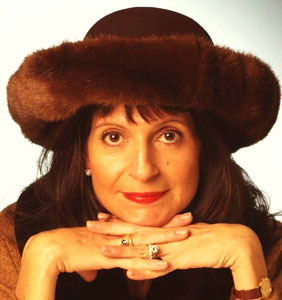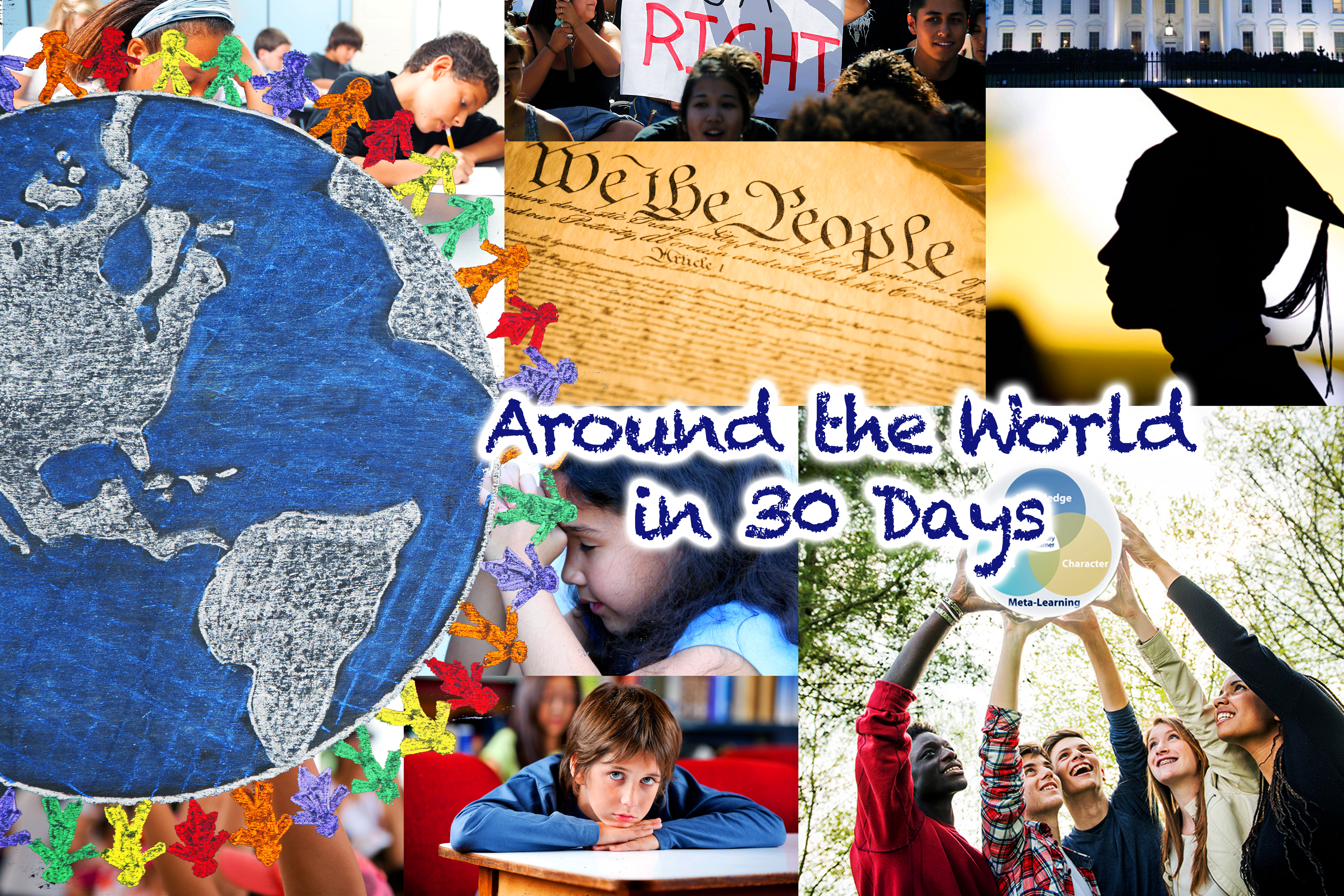
C. M. Rapporto educazione globale di Rubin
In agosto, global collaboration and cooperation was a recurrent theme in Il Global Ricerca per l'Educazione stories and interviews. I talked to the CEO of Edmodo, a leading innovator in K-12 blended learning, about how teachers, learning platforms, Software, genitori, and students across the globe can work together in new ways thanks to digital technology. And I caught up with international guests and teachers at Edmodo’s annual conference, EdmodoCon, which has been called the educational collaboration event of the year. Anche questo mese, Maciej Jakubowski (Università di Varsavia) shared his research on Polish Ed Reform along with his tips for the rest of the world. Anthony Carnevale (Georgetown University) discussed what’s really happening with US Jobs, while Cynthia Lopez (former Film Commissioner for the NYC Mayor’s Office of Media and Entertainment) gave us an update on entertainment business jobs in NYC. Infine, la nostra Top 12 Global Teacher Bloggers talked about building partnerships between the classroom and the home.
On August 4th, EdmodoCon 2015, Edmodo’s annual conference online, was streamed live from San Mateo, California. Thousands and thousands of teachers from all over the world logged on to share the ways they are using Edmodo and other tech tools to personalize learning. Catching up with the international participants, I heard many real world viewpoints on blended learning. From Spain, Teresa Perles told me that, “spiegazioni lunghe sulla lavagna sono sicuramente diventato fuori moda nella nostra scuola. Oggi, tutte le classi hanno uno schermo su cui siamo in grado di proiettare le presentazioni che abbiamo creato o scelto in anticipo, e poi noi li condividiamo con gli studenti; o realizziamo insegnamento capovolto.” Lisa Goochee, former teacher in Brazil and now at Stanford Learning Design added, “La caratteristica più rudimentale obsoleto e distruttivo nel moderno K-12 lo spazio è l'enfasi sul test standardizzati insieme ai ammissione al college e dei processi di iscrizione che si basano su queste convenzioni di test. Con gli strumenti digitali che abbiamo a portata di mano, potremmo liberare i bambini a sperimentare e dimostrare il loro apprendimento in modi molto più accattivanti attraverso la documentazione live di basati sulla comunità o del mondo reale sforzi.”
I talked to Vibhu Mittal (CEO of Edmodo – the world’s number one K-12 social learning network) and Michael Horn (co-founder and executive director of the Clayton Christensen Institute). The resources blended learning can provide to teachers and students are growing exponentially every day. Keeping up with the changes in educational technology can be a challenge. Horn notes that “Dobbiamo sostenere gli insegnanti in questo cambiamento nella pratica, e abbiamo bisogno di creare esperienze di apprendimento più personalizzati per gli insegnanti pure in modo da poter riconoscere e certificare la loro padronanza di alcune parti del loro mestiere e sostenerli nelle zone dove devono e vogliono migliorare.”
Maciej Jakubowski (Università di Varsavia) discussed with me how Poland turned around its education system from having one of the lowest PISA achievement rates in Europe to one of the best. The story serves as an inspiration to any struggling national educational system. His advice for further improvement in Poland and abroad — “Dobbiamo fornire maggiore sostegno per gli studenti più deboli, mentre allo stesso tempo dobbiamo riconoscere meglio i diversi talenti e trovare diversi modi per farli prosperare all'interno del sistema scolastico completo.”
Some interesting news about the US economy: Mentre i lavori medi salariali mostrano piccoli segni di ripresa, a new study from Georgetown University discovered there have been more “good” lavori (which pay at least $53,000 un anno) than people have assumed, e 2.8 milioni del 2.9 million good jobs gained in the recent period of recovery have gone to college graduates. Anthony Carnevale, the lead author of this report, gave me the scoop on this important data, noting that “Buoni posti di lavoro che sono stati di primo piano in questo recupero sono responsabili, gli sviluppatori di software, medici e chirurghi, infermieri, gli analisti finanziari e le occupazioni di computer,” all pointing toward the continued importance of a college education, despite what certain pessimists might claim.
And some good news for the NYC economy: I talked to the owners of the thriving Silvercup Studios and Cynthia López (former Film Commissioner for NYC) about Silvercup’s expansion into the Bronx and how filming movies and TV shows in New York boosts revenue and the local economy. As López noted, “Il settore genera miliardi di dollari per l'economia locale e impiega 130,000 Newyorkesi dietro le quinte.”
Infine, bringing it back to the all important level of the learning journey as we head back to school, I asked our top global teacher bloggers how parents can best help teachers and vice versa. Pauline Hawkins recommended that all parties “find a common ground,” while Richard Wells suggested that students should keep daily logs for both teachers and parents to look at.


Unitevi a me e leader di pensiero di fama mondiale tra cui Sir Michael Barber (Regno Unito), Dr. Michael Block (Stati Uniti), Dr. Leon Botstein (Stati Uniti), Il professor Argilla Christensen (Stati Uniti), Dr. Linda di Darling-Hammond (Stati Uniti), Dr. MadhavChavan (India), Il professor Michael Fullan (Canada), Il professor Howard Gardner (Stati Uniti), Il professor Andy Hargreaves (Stati Uniti), Il professor Yvonne Hellman (Paesi Bassi), Il professor Kristin Helstad (Norvegia), Jean Hendrickson (Stati Uniti), Il professor Rose Hipkins (Nuova Zelanda), Il professor Cornelia Hoogland (Canada), Onorevole Jeff Johnson (Canada), Sig.ra. Chantal Kaufmann (Belgio), Dr. EijaKauppinen (Finlandia), Sottosegretario di Stato TapioKosunen (Finlandia), Il professor Dominique Lafontaine (Belgio), Il professor Hugh Lauder (Regno Unito), Signore Ken Macdonald (Regno Unito), Il professor Geoff Masters (Australia), Il professor Barry McGaw (Australia), Shiv Nadar (India), Il professor R. Natarajan (India), Dr. PAK NG (Singapore), Dr. Denise Papa (Stati Uniti), Sridhar Rajagopalan (India), Dr. Diane Ravitch (Stati Uniti), Richard Wilson Riley (Stati Uniti), Sir Ken Robinson (Regno Unito), Professor Pasi Sahlberg (Finlandia), Il professor Manabu Sato (Giappone), Andreas Schleicher (PISA, OCSE), Dr. Anthony Seldon (Regno Unito), Dr. David Shaffer (Stati Uniti), Dr. Kirsten Immersive Are (Norvegia), Cancelliere Stephen Spahn (Stati Uniti), Yves Theze (LyceeFrancais Stati Uniti), Il professor Charles Ungerleider (Canada), Il professor Tony Wagner (Stati Uniti), Sir David Watson (Regno Unito), Professor Dylan Wiliam (Regno Unito), Dr. Mark Wormald (Regno Unito), Il professor Theo Wubbels (Paesi Bassi), Il professor Michael Young (Regno Unito), e il professor Zhang Minxuan (Porcellana) mentre esplorano le grandi questioni educative immagine che tutte le nazioni devono affrontare oggi.
Il Global Ricerca per l'Educazione della Comunità Pagina
C. M. Rubin è l'autore di due ampiamente lettura serie on-line per il quale ha ricevuto una 2011 Premio Upton Sinclair, “Il Global Ricerca per l'Educazione” e “Come faremo a Leggere?” Lei è anche l'autore di tre libri bestseller, Compreso The Real Alice in Wonderland, è l'editore di CMRubinWorld, ed è un disgregatore Foundation Fellow.
Segui C. M. Rubin su Twitter: www.twitter.com/@cmrubinworld





Commenti recenti